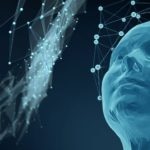What would Aristotle say about artificial intelligence?
Probably the first thing the philosopher would do would be to create a strategy to explore it. Just like when he designed a user's manual for the human mind with Logic or when he developed a method of thinking critically to examine metaphysics. Aristotles “tried to show that all things in nature belong to certain groups and subgroups,” writes Jonstein Gaarder in Sophie’s World. But first, he counted up the tools he had for this task.

Among the ways to discover artificial intelligence (AI), are the senses and—paradoxically—the intellect. Some questions emerge from this method; where would we classify AI? In the range of human products? Or perhaps, in human logic and its derivations?
Along these lines, Aristotle would have tried to clarify the definition of intelligence. He called the “rational soul” the environment of the human intellect, although there are other qualities of the soul, like the vegetative and sensitive state. AI could be considered partial intelligence. An Aristotelian question would be, does this intelligence have an essence, that is, can it could be considered “something” or “someone”? That would depend on its autonomy. Is the essence of AI in software or hardware?
These seemingly theoretical questions become more practical if in the future we delegate some responsibility to AI and integrate it into our laws or constitutions. We can't forget that the entire structure of Aristotelian thought points to ethics and social life.
Is it possible to understand AI? The question may appear to be obvious, but Aristotle was quite prescient. It would be a natural tendency, because as he writes in Metaphysics, “all men by nature desire to know.” Perceiving through the senses is a first step in the knowledge of AI, because it helps us to understand that AI depends on electrical impulses and that its development is possible thanks to sophisticated energy management. This is also very Aristotelian because as he also says in Metaphysics, “the appreciation for the senses is the result of the knowledge we obtain from them.” However, after communicating with the machines thanks to the interfaces and better understanding their processors, we’ve reached less sensory matters.
We have to focus on the foundation of AI. Perhaps Aristotle would have dusted off the philosophy of mathematics. This philosophy seeks to understand numbers as a different idea. Reflecting on the capacity of numbers to define the universe is an interesting question. Perhaps the philosopher would have observed other possibilities when speaking about programming languages, machine code, heuristic approaches, algorithms and the binary system.
On this point, we deduce that understanding any kind of intelligence is difficult. When the philosopher theorizes about it, he suggests the best intellect would be that “which thinks for itself.” An intelligence that understands itself completely would be perfect. If human understanding were this way, an article like this would not make any sense. Thank goodness it isn't.
Before Aristotle, the wiseman of Stagira had observed that the world is populated by many beings with diverse characteristics. Aristotle’s History of Animals is a classification of the diverse forms of life to be found in nature.
One of the differences that between them is their level of intelligence. Aristotle describes the human as “a rational animal”. So how would Aristotle, an expert in definitions, deal with the situation of artificial intelligence (AI) and its relationship with existence or the recreation of it.
The notion of AI emerges in contemporary thought after the Turing Test, about whether or not machines can simulate human thought. This work was published in 1937 in the Proceedings of the London Mathematical Society . Both Turing and the founders of the AI concept worked at the 1956 Dartmouth Summer Research Project, on the capacities that computers have to solve problems in the way the human mind does.
Following this direction, Aristotle would make some comparisons. For example, when he indicated that some animals could have signs of intelligence similar to human intelligence. In Nicomachean Ethics, Aristotle says that “some animals are prudent,” and also that birds are ingenious, ants are laborious and pigeons warn of impending danger. Surely Aristotle would also make some comparisons to AI.
Based on this, one would have to ask if AI would be capable of defining what is around it? The scientist Ramón López de Mántaras says in The next step. Exponential life that we can see the computer as a “creative tool in and of itself,” and evaluate its products, as we do with humans. Research in this area analyzes just that, the developments of computational creativity.
Since for Aristotle, intelligence is capable of proposing concepts based on sensory perception, another sign of reasoning would be the possible interpretation of the world that AI gives us. If a robot were to explore another planet, and in addition to giving information, it would test new definitions about its structure, then perhaps it would be thinking in an Aristotelian manner.